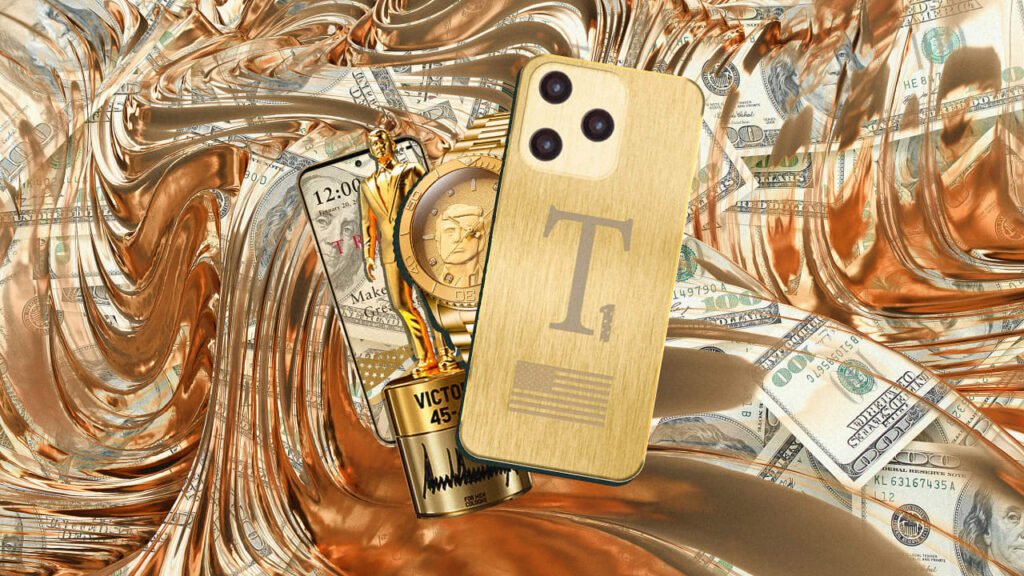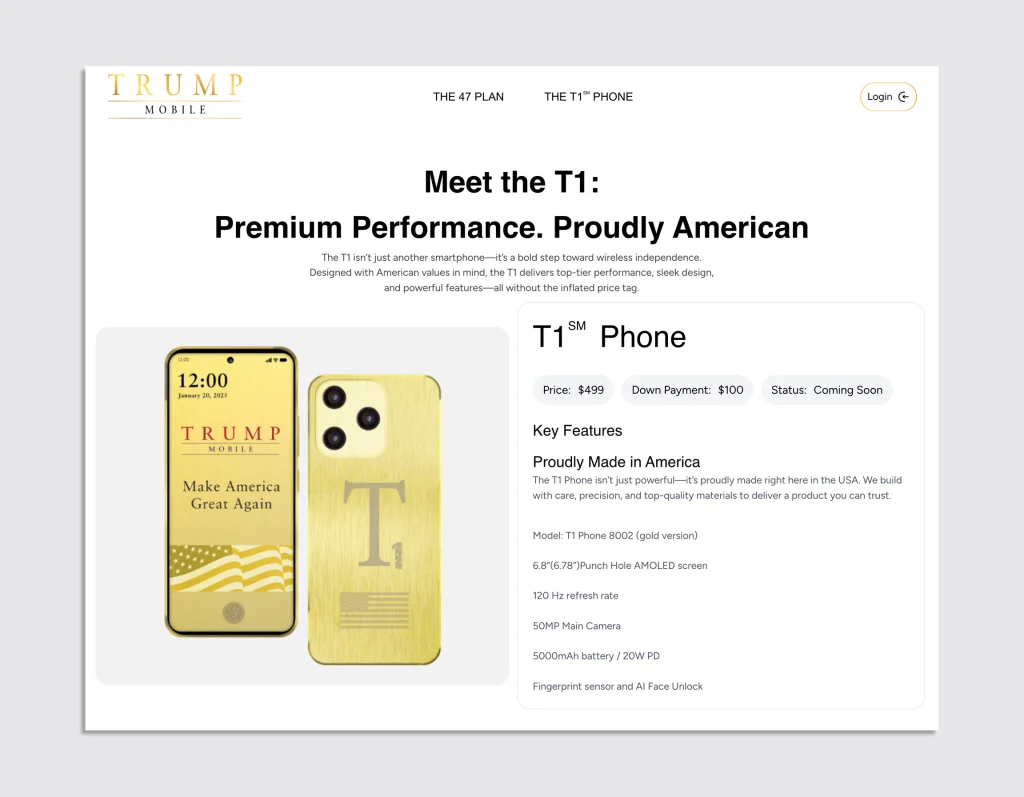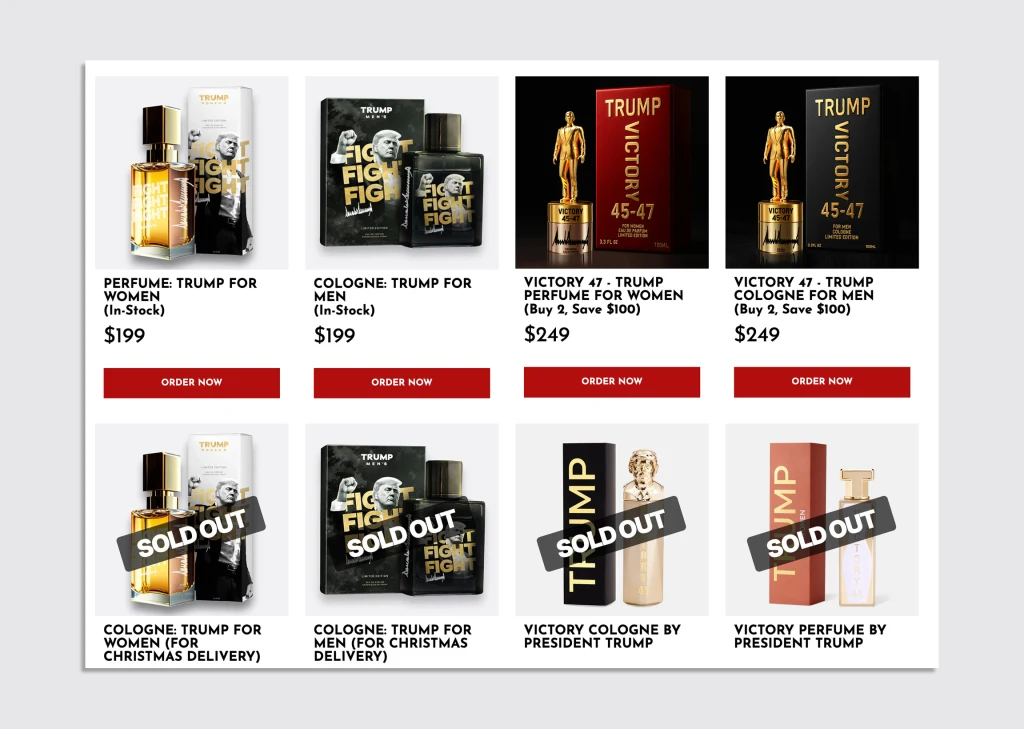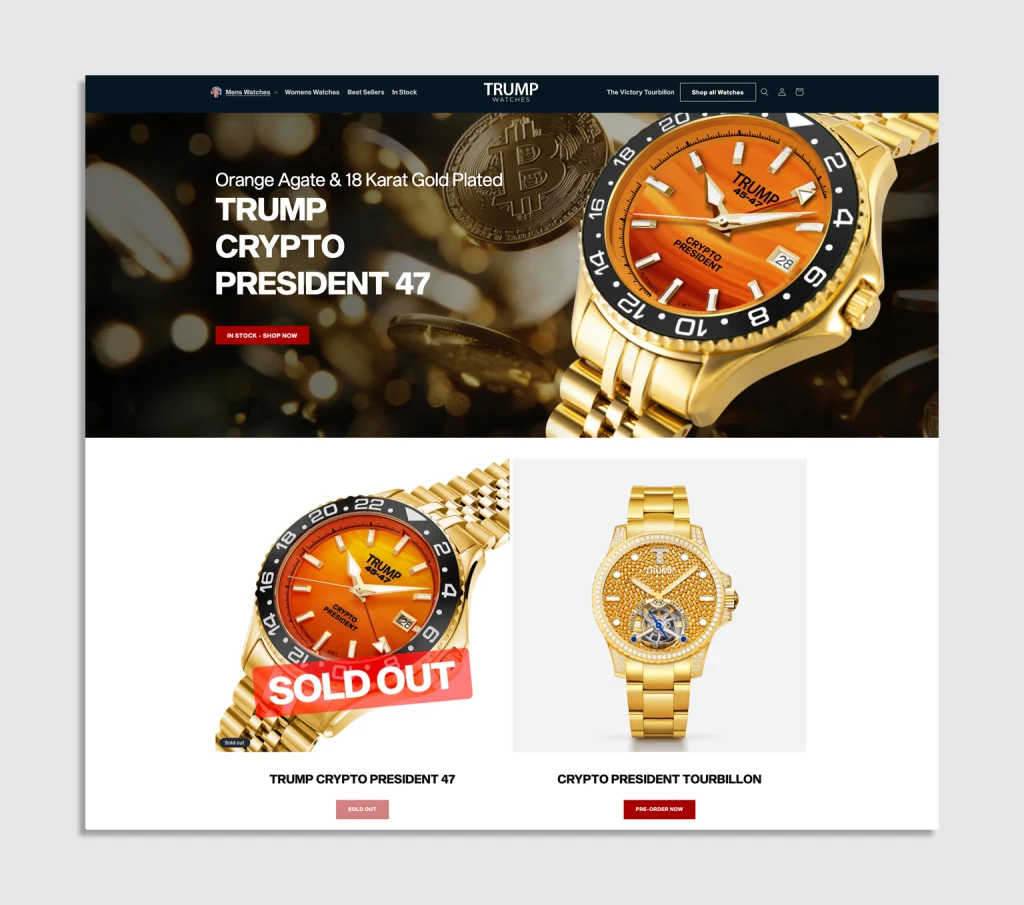
Winning the 2024 election came with lots of benefits for Donald Trump: more Cabinet secretaries to fire via tweet, more grimacing sit-downs with foreign heads of state, and more time beyond the reach of the criminal legal system, thanks to a generous assist from the conservative justices on the Supreme Court.
It also bought him (and his family) four additional years to fulfill the primary goal of the presidential campaign he launched a decade ago this month: extract as much money as possible from his adoring followers, for as long as they are willing to part with it.
Trump and his eldest sons, Don Jr. and Eric, wasted little time getting back to work, unveiling a dizzying array of cryptocurrency ventures that have netted hundreds of millions of dollars and counting, according to The Washington Post. (Another benefit of being the president: the power to set the regulatory agenda for the speculative assets in which you happen to be investing heavily.)
But they are also working hard on what might be an even more ambitious project: creating an alternative Trump-themed economy full of shoddy, overpriced consumer goods, betting that his acolytes will happily pay a premium for anything with his name slapped across the packaging.
The latest offering is Trump Mobile, a wireless plan priced at $47.45 per month. (Do you get it? 47 and 45? You get it.) The Trump Organization says Trump Mobile’s unlimited talk-and-text plan—the “47 Plan,” in case the price was too subtle a reference—will come bundled with roadside assistance and device protection, as well as virtual medical care and prescription medication benefits at “no additional cost.”
Sure enough, a graphic posted on the Trump Mobile website promised subscribers “27/7” [sic] access to doctors from the comfort of their “own homw” [sic]. The copy has since been corrected, but still, there is no better encapsulation of the modern Republican Party ethos than its leader promoting scammy-looking, typo-ridden healthcare via smartphone app while GOP lawmakers strip Medicaid for parts.
The Trump Organization is not actually operating a wireless network—like most Trump-branded products, Trump Mobile is a licensing deal with a business partner—but Don Jr. and Eric both featured prominently during the rollout. For prospective users uninterested in using the 47 Plan with their regular smartphones, Trump Mobile is also offering (of course) a gold Trump-branded smartphone, the T1, for $499.
The website says the T1 is “Proudly Made in America,” but after enough annoyed supply chain experts noted its similarities to an existing Chinese-made smartphone—and explained in detail why domestic production of a smartphone at that price point is more or less impossible—Eric Trump backed off this promise a bit: The phones, now available for preorder, can be built in the U.S. “eventually,” he said.

As detailed in Trump’s financial disclosures released earlier this week, Trump Mobile’s products are only the beginning of what you can purchase if, in your estimation, the market’s usual offerings are simply too woke. You can buy Trump-branded watches, some of which allegedly feature a baseball card-style snippet of the suit Trump wore for his mugshot in 2023, for as little as $499 or as much as $100,000 (not a typo).
You can buy Trump fragrances, which the website advertises as “Your Rallying Cry In A Bottle.” There are Trump-branded guitars, Bibles, and sneakers. There is an entire publishing house, Winning Team, which is most famous for printing a Marjorie Taylor Greene book in Canada. These deals are nowhere near as valuable as Trump’s crypto holdings, but still, in 2024, they earned him around $10 million in royalties—a pretty nice annuity, in the event that the market for his meme coin collapses overnight.
These ventures have been successful enough that others are eager to get in on the action. Instant Pot reportedly has a collection of Trump-branded kitchen appliances in the works; Lenox has pitched a line of Trump dinnerware, flatware, drinking glasses, snow globes, and Christmas ornaments; and a pair of home goods companies have proposed to sell Mar-a-Lago and White House sheet sets. (A spokesperson told Semafor that proceeds from sales of these products would go to Trump’s presidential library, a maneuver often employed by people who want to give presidents money but would prefer to avoid doing so directly.)

A February trademark filing by the LLC that manages Trump’s licensing agreements illustrates the potential breadth of his burgeoning consumer goods empire. Among many other things, the application mentions “virtual training services in the field of hotel and real estate management”; “virtual personal coaching services in the field of public speaking and fundraising”; and “virtual reality-based virtual worlds in which users can exchange digital goods and crypto currencies using only those images, texts, videos, and sound files authorized by the 45th and 47th President of the United States.” (Authenticated by NFTs, naturally.)
Trademark applications are often drafted broadly, so the filing is not necessarily evidence that a MAGA-branded metaverse is about to launch. But it does suggest that there is basically no type of deal Trump won’t make to squeeze more money from his followers. If people like Mike Lindell can cash in on grievance politics by linking it to a bedding brand, Trump and his sons figure they might as well take over the market while the market is hot.
Trump has spent most of his life as a freewheeling branding guy, as aficionados of Trump Steaks, Trump Vodka, and Trump Ice Natural Spring Water can attest. But the market for stuff with his name on it is considerably more robust today than it was back when he was a tabloid-fodder reality TV host. These newer ventures are also not luxury-golf-resort tee times or penthouse hotel suites or condominiums in midtown residential towers; they are low-risk, low-effort deals seeking to capitalize not just on his celebrity, but also on the political movement he represents.
A discounted USA-themed phone plan is the exact sort of thing that might appeal to his supporters, and especially to the lower-income people and seniors among them. What better way to celebrate the triumphs of a candidate you voted for three times than paying for the privilege of seeing his logo every time you take your phone out of your pocket?

Perhaps the grimmest throughline of the emerging Trump economy’s offerings is just how much contempt they evince for prospective buyers. As The Verge points out, Trump Mobile is a straightforwardly bad product relative to the major carriers’ prepaid brands, and even worse when compared with smaller alternatives. A Wired analysis found that Trump Mobile’s baffling privacy policy—which claims that the just-announced company has somehow already “collected” consumers’ “mail, email, or text message contents”—appears to have been lifted from the Trump Organization’s privacy policy.
At 404 Media, Joseph Cox called attempting to preorder a T1 “the worst experience I’ve ever faced buying a consumer electronic product.” A Washington Post columnist who tried to sign up for Trump Mobile discovered that the plan’s $47.45 monthly cost tag does not include a $17.25 “plan telecom tax,” which sort of defeats the purpose of setting a novelty price point in the first place.
Even if Trump Mobile is not about to make the sitting president into the world’s next telecom mogul, his willingness to enter the market is part of a quantity-over-quality strategy designed to turn political supporters into loyal customers.
And, as his approval ratings slide, the sooner the better: If he spends the next three-plus years tanking the economy, waging a wildly unpopular war in the Middle East, and/or deploying the military on U.S. soil, even his target audience might decide that, come to think of it, their current phone plan isn’t so bad after all.


